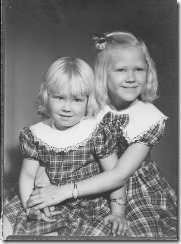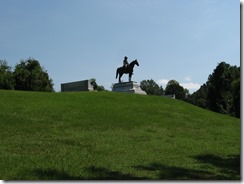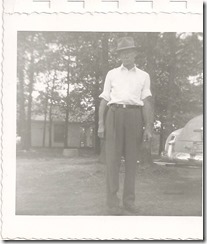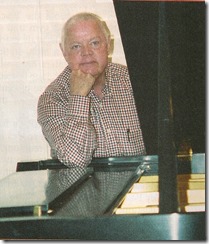Tonight’s such a beautiful night. I wish everyone of you could celebrate its glory with me. Seems I’ve been on this journey for such a long time now, but I realize that a dog’s year is really seven people years. I won’t complain.
Tonight’s story is a gifted on. That means the story came to my lady all at once. She typed it, sent it off to University of Alaska, and boom! they published it!
It’s a love story, but also sorta a sad story. I give it three woofs! See what you think it deserves. I think a three woof story is pretty good myself.
My baby sister is growing and eating and sleeping and running and galloping and gnawing and whining when she doesn’t get her way. That’s a girl for you! (Sorry, ladies! At least I didn’t accuse her of crying to get her way!)
Paws for a few minutes and read this story. It’s about a child who was stolen by a widow woman who had no children. Interesting outcome!
See you next Tuesday. Don’t forget to scroll to the bottom and make your comments!
As always, Cooper the Cocker
Woof! Woof! Woof!
Alma found the baby asleep under the back porch. Not yet two, it’d crawled in during the night and nested in an old dent Harry’s yard dog’d dug years ago. Using Harry’s hoe handle, she nudged it gently until it woke and dragged itself out. Before lifting it and carrying it into the kitchen, she sized it up and down, wondering if this was what she’d been waiting for these years and just didn’t know it. Twisting the yellow #2 pencil she wore in her hair like an errant twig, as if scratching out an answer to her own question, she whispered, “I God. Look at what we got here,” then took it inside, bathed it off and fed it hot oatmeal cooled down with cream.
Alma had first heard the baby cry just before daylight, but she put the blame on having early morning grogs or going through late change miseries. After all, she told herself, she was fifty-seven. Or maybe, she thought, hearing things comes natural, her being a widow living alone at the end of the road these years. Whatever the reason, the thought of a child of her own made her heart beat stronger.
During the day, she thought she’d hear whimpers, more whine than cry, like a puppy fenced off from its mama. She passed it off best as she could, but before nightfall, she searched out the sound.
“I’m Alma Tubbs. Harry’s wife,” Alma told the baby as she spooned in the mush. “No, better make that Harry’s widow, little one.” She shifted the baby in her lap. “Now, let’s see. What’s your name, you who dropped out of the nighttime sky?”
The baby stared at Alma out of heavy brown eyes and said “MeMaw? See.”
“I’m not your MeMaw, child. I ain’t nobody’s MeMaw,” Alma answered. “Fact is,” she continued quietly, “I God. Ain’t nobody’s nothing, reckon.” The baby nodded. “Bet you’re all tuckered out, crying all night and half the day.” So she made the baby a thick quilt pallet, wrapped it in her flannel pajama top, and settled the child on the floor next to the bed she’d last shared with Harry fifteen years ago. “Nice to have somebody else in the house, little girl,” she said as she turned out the light.
The next morning Alma woke with the baby in bed with her. Curled in a ball, the baby fit beneath Alma’s breast as if it was part of her body Alma didn’t recall. She reached down and rubbed the back of her fingers across the baby’s cheek. “Soft,” she murmured. “Soft as a young spring leaf” and smiled, convinced the child was a gift handed down from God. From that moment on the baby was hers.
At the time, Alma didn’t know the Covington baby was missing. As soon as she turned on the radio, the announcer interrupted the morning swap-shop to say the county was looking for Mose Covington’s step-girl, who, so said Covington, wandered out of the house the night before. Though Sheriff agreed to lead the search, he’d hinted that he found it hard to believe that an eighteen-month old child could open the door, walk out into the dark and disappear without a trace. “Unless Mose had been a little more than drunk,” he chuckled. “Everybody knows Mose’s temper. He sure fire favors his liquor, specially when he gets to thinking about the little girl not being his own, and all, and what with the baby’s mother running off leaving him to raise their own boy and her girl-bastard as well.”
Alma didn’t know, but she could guess. She didn’t want to know about the Covingtons and their problems. Sounded like white trash to her and one man’s trash . . ., so they say. As far as she was concerned, the baby had come to her on her own so the baby belonged to her. She didn’t look too different from any other baby, so folk’d be easy satisfied.
Truth be known, this could’ve been Alma’s own baby. If she’d been thirty years younger, and if she hadn’t’ve lost all her own back then. A young wife, she’d buried three babies out back of the barn. None come to term, each less than four months into her carrying, babies who’d plopped in a bloody clump into the bedside chamber pot, stark red against speckled blue enamel. She’d poured each one into a fruit jar, sealed the top tight and buried it, each deep enough so coons couldn’t ferret it out. She never told Harry about number three since he broke most of her plates at the first one, then all her bowls at the second. After both times, grief drove him to sleep in the loft till weather drove him back in.
Morning of the baby’s coming, as soon as she heard the car gearing down to make the hill, she ran to the window. She’d expected it. It was the law. She grabbed the Covington baby, a pillow, blanket, and matches. Ran out the back, past the barn, and under the hill, down the steps into the storm pit. She lit the candle so the baby wouldn’t have to know the dark again and put her on the blanket in the middle of the cement floor. Alma closed the door, flush against the ground. Before the sheriff had parked his car, she’d dropped cinder blocks on the door and pulled a downed bush over the opening. Harry’d built the pit strong, strong enough to make it almost sound proof, so if the baby cried, the sheriff wouldn’t hear.
She met the law at the front door and told him she didn’t know nothing about a baby. Couldn’t see how a baby could get to her place, seeing as how she lived in a hollow surrounded by a creek and heavy woods, all the time twisting the #2 pencil as if writing words on the back of her head, words a sheriff might find pleasing.
The sheriff thought the baby might’ve got lost and showed up here. The Covingtons lived through the woods behind her. Or didn’t she know? And the creek was lower than usual this spring, what without rain, and all. He stopped, staring at the pencil eraser sticking from behind Alma’s right ear, then finished with his usual “and all.” So frustrated with him ending everything he said the same way, she wanted to pull out her pencil and rub out what he said. But Alma let him talk, then showed him around, keeping her eyes away from the storm pit.
After he drove back up the hill, she lifted the baby out and, holding it to her cheek, she promised on her soul that the baby’d never have to stay in the dark again. In the kitchen, she rocked her to sleep in Harry’s old chair.
Within the month, Sheriff arrested Mose and charged him with murdering the Covington baby, though nobody’d found a body, as yet. The county farmed the baby’s four-year-old half-brother Mark out to a woman up in Sipsey who raised kids for a living.
At the general merchandise, Alma let it be known in short chunks of sentences that her sister up North had a grandbaby she was too sick to raise, and she was going to Ohio to see what was what. She loaded the baby into her ’54 Chevy and left at daybreak the day before Mose hung himself in the county jail.
Alma named the baby Dawn. In the fall, she brought her home and introduced her to folks, whenever necessary, as her own great niece from up around Cleveland. What people saw her praised Alma for taking on such a burden so late in life and urged her to move closer in. Alma stayed put. Never much of a mixer she told Dawn.
Sheriff would come back to Alma’s again, this time to question why Alma hadn’t sent the child to school. He shouldn’t need to ask. Any man could saw in her eyes that this old woman cherished this child beyond measure and feared losing her more than life itself. When he threatened to send the girl to a foster home up in Sipsey, Alma took her and put her in the first grade. For the whole year, three o’clock and the teacher opened the door to Alma waiting to take Dawn’s hand. Dawn was eight.
Alma was looking at seventy when Dawn had her first real sickness. They’d gone through measles and colds and the pain of the curse without much ado, but this one was different.
Dawn drooped from place to place and had to be pushed to catch the bus for school. She’d never liked school anyway, said the kids teased her because she was fourteen and in the seventh grade. But Alma saw things changing. Natural dark skin looked faded, no light in her hair, as if Dawn’d been drained of life. She disappeared every morning before breakfast and refused to eat. Hot oatmeal cooled down with cream didn’t phase her. Days all she wanted to do was sleep, and Alma sat by her bed, with Dawn turned to the wall.
In the second month of the sickness, Alma woke in the night and found Dawn gone, she called the sheriff to find her and bring her home. He had her back before daylight. Told Alma he’d found her, and all. Back in through the woods. That’s all she could get him to say.
It was then Alma knew Dawn was having a baby. Though she’d never carried a child to full birthing herself, her instinct told her. When she told Dawn she knew, Dawn slammed out the back door and ran for the creek. Alma let her go. She’d be back. Dawn’d grown up with the creek and the woods. There’s where she spent most of her time these past dozen years. In the kitchen, moving back and forth in Harry’s cane rocker, easy like a slow gathering cloud, Alma scratched her head with the pencil and waited. Before sunset, Dawn walked in the kitchen door.
“MeMaw,” she said hushed, “it’s getting dark outside.”
“I know it, Baby,” Alma answered. She reached out her arms to draw Dawn in, but Dawn turned away.
Three weeks’d passed before Alma got Dawn to talk about the baby. Every night Alma wandered through the rooms in her heart, searching for new people space in their lives, but she found none. Alma had filled each nook and cranny with her Dawn, with no space left. To squeeze two into one would pop her heart’s old thin walls and spill blood out so far her face would flush crimson.
Dawn told Alma she meant to marry the baby’s father. That he lived on his daddy’s old place through the woods. Alma’s heart stopped, sending a dagger-deep stab the length of her arm and out through her fingers. The only place through the woods was the Covington shack. Alma’s right hand grabbed her left arm. It couldn’t be the Covington place. God wouldn’t do that to her. Besides, nobody lived there, had lived there all these years.
“Yes, they do. Mark lives there. He moved back last summer when he finished school. He’s fixing it up for us and the baby,” Dawn argued. “We want to get married. I need you to take me to town. To sign for me. Please, MeMaw.”
“I won’t,” Alma shouted. “I God,” she stammered. “I can’t.”
“Sure you can. Just take out your pencil and sign.” Dawn smiled through the corner of her mouth. “I love him, MeMaw.” She looked so small standing before Alma, one hand resting on her flat little belly. “You can come visit. And play with the baby.”
“You can’t marry him.” Alma’s heart pounded, sending her breath out in little short gasps. “You don’t know who he is.”
Alma clutched her throat to stop what she’d almost said. “You don’t know what you’re talking about. Listen to your old MeMaw.”
“You’re not my mother.” She bent toward Alma, her eyes on fire. “You can’t tell me what to do,” Dawn shouted.
“Don’t yell at me, Girl. I may not be your mama, but I raised you.” Hot anger shot through her veins and popped out her ears like a farm truck backfire. “I didn’t run off and leave you with no drunk and I didn’t let you wander off and get lost.” Alma broke her words into quick runs with deep gulps between.
“What’re you taking about?” Dawn’s voice fell. “You said my mother died. You said my daddy was killed in the war. You showed me pictures.” Dawn dropped to the kitchen floor and looked up at Alma. “What’re you saying, MeMaw?”
She leaned over and pulled Dawn into her lap, cradling her baby’s head on her shoulder. Boards unaccustomed to such weight in one place squeaked against the rocker. Heaviness the size of Jonah’s whale pulled at Alma’s arms. She recognized the smothering wet that lies in the belly of a fish larger than life itself, and she said, “You can’t marry this boy, Baby Girl.” She paused, and Dawn stepped out of her lap. Alma’s memory whispered “He’s your blood kin,” but her mouth never said a word. Alma stopped the rocker. It was as if she’d been belched out on deserted sand, so desolate she felt at knowing she’d let the moment pass. Unsaid.
Starting the rocker back up, she took Dawn’s wrists in her gnarled hands and lowered her child to eye level. “I never said you’s my flesh and blood. I told you your mama died because as far as anybody was concerned she might as well be dead, leaving you like she done. And your daddy could’ve died in the war. Nobody knowed who he was. I thought it best that he died in the war than hanging in some jail cell by his own bed sheet.”
Releasing her grip on Dawn, Alma shook her head, fearing now she’d said too much. The #2 pencil jarred loose and hung in a slant toward her shoulder. Dawn reached out to catch it before it hit the floor. “We’ll go North. Live with my sister, for a spell, then come back, if you want. When you’re over all this.” Dawn didn’t answer. “We’ll give it away to somebody who’ll love it.” Dawn drew her hand away from Alma’s head and stepped back, bumping into the kitchen cabinet. She reached behind herself to stop her fall. “You don’t understand. You’re just an old woman. You don’t know what love is.” She looked at Alma and dropped to her knees, pulling out the drawer she’d grasped. “You never loved anybody in your whole life. Nobody but your own self.”
Alma felt her face go white, like an over-bleached sheet, She barely spoke, “I don’t know. I thought I did.”
“How can you say that, MeMaw? I’ll just die if you won’t sign.” Alma expected Dawn to stomp her foot like she usually did when in a tantrum, but she didn’t. “I never had a family. Now I can have a whole family all my own. And you’re being so selfish you won’t sign.” She glared at Alma. Then dropped her head. “I’m going to have a baby, MeMaw,” she wailed.
Ignoring the binding in her chest, Alma lifted herself out of the chair. The yellow #2 pencil slid to the floor and rolled into the far corner behind the table. Harry’s rocker bumped empty on polished oak floor boards. She laid one hand on Dawn’s dusky hair, the other on her own breast. “Get up, Baby,” she said.
Dawn jerked from under Alma’s hand, and boosting herself up by the silverware drawer, she reached in and grabbed a butcher knife by its handle. She pulled it back, the point toward Alma.
Breath barely moving her bosom, Alma lifted her hand slowly toward her throat, leaving her chest open.
Dawn swiped the knife straight across the air between them, pricking Alma’s arm. Seeing a strip of blood form on her mother, Dawn dropped the knife and sobbed, “Oh, Memaw, what have I done?”
“Nothing, Child. You ain’t done nothing at all,” Alma crooned. “I’m the blame,” she said.
Dawn ran out the back door, clutching the knife before her. Alma followed her and found her crying in the storm pit, the slab door flung open to the sky. She lit a candle and sat down on the wooden bench, slipping her right arm around Dawn’s waist. Dawn dropped the knife with a clink to the concrete floor. Between sobs, she said, “What’re we going to do, MeMaw?”
Alma tried to lift her left arm to take out the pencil, but weight pinching her heart kept it from moving. “Go get the paper.”
“We have to go to town,” Dawn insisted. “The papers’re in town. At the court house, MeMaw.”
“You look just the same. The first time I saw you, Baby Girl,” Alma’s hand dropped open into her lap. Her words popped out in little skips and sweat wet her face. “Hurry up now. Before dark comes in.”




